|
There was grumbling back in 1994 when “The Fugitive” got an Oscar nomination for Best Picture. It was a fiercely competitive year—the film's rivals included “In the Name of the Father,” “Remains of the Day,” “The Piano” and the ultimate winner, “Schindler’s List”—and it was widely assumed that “The Fugitive” had been been granted the token “popular” Best Picture slot as a sop to regular folks who preferred escapism to heavy historical drama. It was a thriller based on a beloved but not particularly deep TV series, it starred action-adventure king Harrison Ford, and it wasn’t making statements about anything.
I watched "The Fugitive' again last night for the first time in years and it didn’t seem like the weak link at all. It's as finely crafted an example of its specific subgenre—“wronged man tries to clear his name”—as you’re going to find. It’s as much sheer fun as “Casablanca,” “All About Eve,” “The Sting,” “Annie Hall” and “Rocky,” all of which won Best Picture over more superficially “serious” competition by embodying excellence without seeming to flaunt it. It glides across the screen like a falcon waiting for the right moment to dive. Read more
0 Comments
My grandfather lived eighteen months after my grandmother died of bone cancer. He spent the last 18 months of his life wasting away in the Retirement Inn in Dallas, Texas. My mother used to drop me off there to spend the day with him every Saturday and sometimes on Sunday. I was a sophomore in high school. I don't know if my mother really understood how bad things were getting or how much care he required. I used to help him take a shower. First I'd help him take his clothes off, then I'd walk him to the shower, then I'd stand there while he stood under the water, and then finally I'd help him towel off. He needed help with all this because he'd had a stroke and couldn't really lift his arms above his shoulders. I helped him to to the bathroom, too. Sometimes if he was really tired or was having issues with his arms, I'd wipe him.
I don't remember when, exactly, that the dementia hit him. But it got steadily worse during his last six months. Sometimes he couldn't remember my name. Other times he'd call me Jake, which was the name of one of his brothers. And there were a few times when I knew that he had totally forgotten who I was, and was pretending he remembered because he didn't want to be rude. Grandpa was a gentleman that way. Read more “To be trustworthy is not more important than seeming to be trustworthy.” That line from “Beat the Devil” is delivered by Peter Lorre, of all people—a marvelous character actor but never one cast for his innate trustworthiness. And that’s the joke. “Beat the Devil,” a 1953 film about a bunch of disreputable people scheming to take control of uranium deposits in British colonial Africa, is a movie that always knows exactly what the joke is. And it’s often a funny joke that lands with a sting.
Directed by John Huston from a screenplay co-written with Truman Capote, this curiously laid-back film, which is being re-released to theaters this week in a new digital version, has been described by critic Dave Kehr as “the birthplace of camp.” I’m not sure camp is the correct word for what “Beat the Devil” is, but we might as well just go ahead and accept it in the spirit of a self-aware, often self-deprecating movie that’s filled with characters who always feel emboldened to make up whatever story they wish and represent themselves and their motives however they see fit, and even filch each other’s words when it suits them. Several times in the film you hear a character trot out a particular observation or turn of phrase and then hear it repeated by another character who was there when they said it, in a different context, as if they just made it up on the spot. Read more Toward the end of "John Wick: Chapter Two," a supporting character states that the hero, an emotionally tortured assassin, is addicted to vengeance. Well, yeah—now that you mention it; he’s only been killing people by the bushel for nearly four hours’ of screen time, first to avenge the murder of his dog and the theft of his car, then to redress a betrayal by a crime lord who helped him in the first film and now calls in a favor that Wick can’t refuse.
But the act of mentioning Wick’s revenge addiction makes it funny, and it turns what might've been a somewhat full-of-itself sequel into something faintly mysterious, at once kidding and not-kidding. That’s the Wick trick in a nutshell: making a combination drive-in exploitation flick and arthouse deconstruction of same, while handing academics literary and aesthetic cues like trays of canapes at one of those fancy parties that the hero always transforms into a bloodbath. This sequel to the sleeper hit "John Wick" is the kind of movie that turns subtext into text constantly, blatantly yet playfully, stopping just short of winking at the audience (although on at least one occasion a character actually does wink, at such an angle that the gesture nearly seems directed at us). As Wick gets drawn out of retirement again, coerced into taking one last job and then double crossed and set up as a target, others compare him to the Grim Reaper, describe him as the devil's emissary and the boogeyman, and contextualize him in mythology. At one point another retired assassin who now tends pigeons on a roof—a la Forest Whitaker in Jim Jarmusch's beguiling yet inexplicably almost-forgotten Zen action flick "Ghost Dog: The Way of the Samurai"—gives Wick a gun with exactly seven bullets before leading him to an “Angel Heart”-looking elevator and telling him he's starting his descent into hell. (The retired assassin is played by Sir Laurence Fishburne, star Keanu Reeves' mentor from the "Matrix" films, so of course he savors every line like brandy.) Read more ** S P O I L E R S ****
"Can you even see me?" The French resistance fighter Marianne Beausejour (Marion Cotillard) asks that question of Canadian intelligence officer Max Vatan (Brad Pitt) in the opening section of the World War II thriller "Allied." The two are in German-dominated, Vichy-controlled Casablanca, pretending to be husband and wife in the presence of Nazis that they'll eventually kill in cold blood for the greater good of the Allied cause. She's responding to Max telling her that she looks beautiful—not once, but twice. She appreciates the compliment, but she needs to know, is he really seeing her? Good question. What does "her" or "him" even mean in a film like this one? "Allied" is built around two impossibly good-looking people who live their professional lives as blank slates, secret agents who might or might not be sincere or faking it at any given moment, and whose every tiny gesture might hide an agenda hidden inside yet another agenda. At that point in the story, it seems as if Max really is seeing Marianne. After an initial dance of detachment, which sees the two chastely pretending to reignite a physical relationship interrupted by the husband's international travel, they've started sleeping together, disregarding the tradecraft rule that agents pretending to be lovers should never actually become lovers. "Can you even see me?" she asks. "Not really," he says. Read more |
Matt Zoller SeitzFilm critic and filmmaker. Archives
April 2017
Categories
All
|

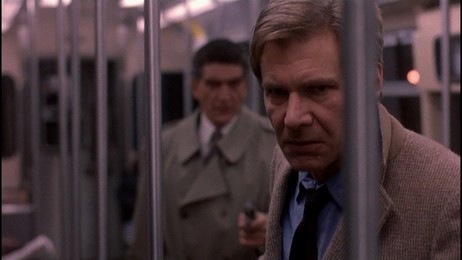
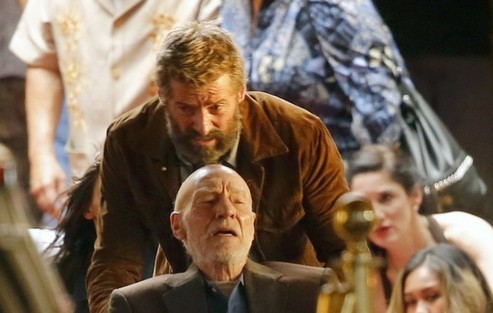
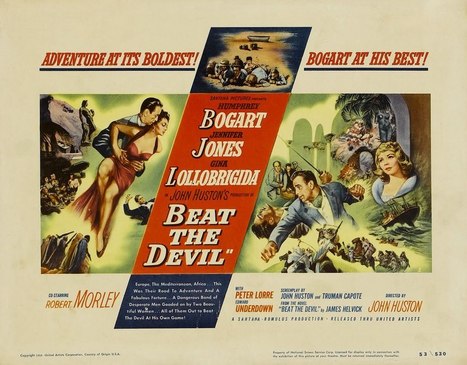
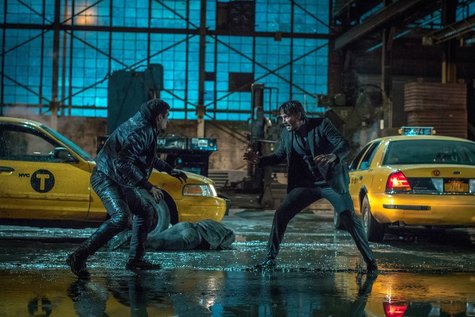
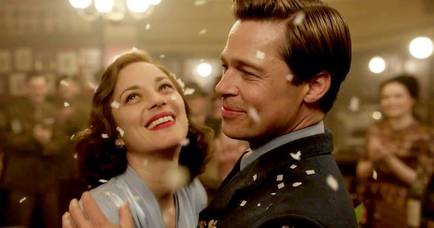
 RSS Feed
RSS Feed